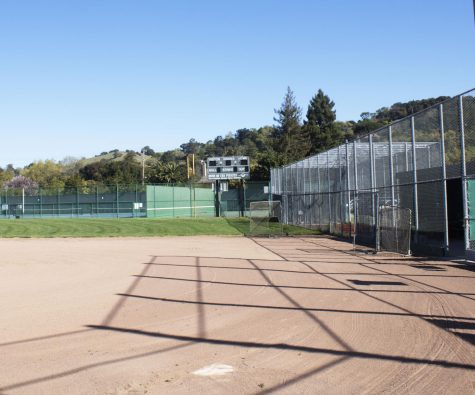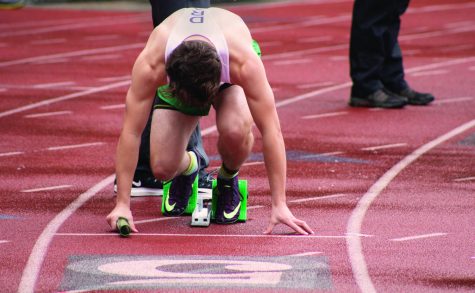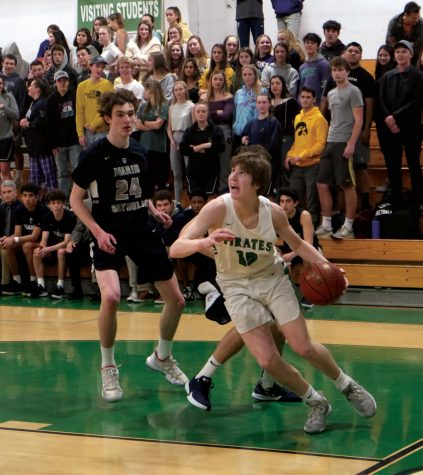Perspective on performance anxiety: You are not alone
The swimmers take their mark up on the blocks, the crowd of onlookers, and teammates hollering “Good luck!” These athletes are ready to race at top speeds through the water. Before the gun goes off, worry consumes one swimmer. Panic, stress and thoughts of self doubt drain any remaining energy.
If you struggle with the idea of performing in front of a group of people, you are not alone. Millions of students and adults around the world deal with performance anxiety (also known as stage fright). According to a Gallup poll 40 percent of American adults experience this anxiety.
In school sports, there is pressure from coaches, teammates, and parents to meet a high standard of athletic excellence. Whether it means beating your personal best time, or striving to be the strongest or fastest team member, there is undeniable toxicity relating to pressure. Comparing yourself to teammates, or being told you need to improve by a coach, can be harmful to already vulnerable teenage self-confidence.
“Negative criticism can lead to anxiety and make you feel worse about yourself,” said Kate Chaplin, a varsity tennis player.
At Drake, there is a great sense of community and support among students and faculty. Coaches have high expectations. Although, most of the time, they are flexible. The highest pressure is on the athletes that are aiming to play sports in college. Meeting the standard that Division One schools require causes stress levels to rise among teenagers.
Considering college recruitment, Drake student Mia Lacy has an opinion on the process. “They [student athletes] want to do as much as possible to stand out to the coaches so they can make the team,” said Mia Lacy, a senior athlete who played field hockey and lacrosse.
Performance anxiety affects the way athletes enjoy the sport they play; it also can affect how well they perform. Due to thoughts of self-doubt or fears of failure, overall performance can be affected because of the distraction of overthinking. It not only decreases performance quality, but also self-esteem and the way people view their abilities.
There are ways to cope with and decrease performance anxiety. An obvious solution is to be as prepared as you can be, i.e. practicing over and over again. Practice can help with confidence and as the saying goes “practice makes progress”. Secondly, it is important to limit sugar and caffeine intake because they might affect nerves negatively. As one study on Biomedcentral.com shows, the side effects of caffeine include increased heart rate and anxiety.
Feeling anxious before a sports game or meeting is a normal occurance for most athletes. You are not alone in experiencing worry and stress before a game, meet, performance, or competition.





